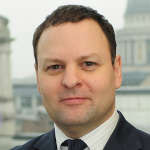In what constitutes the latest major bailed-out bank facing a shareholder dispute, third party financier Therium Capital Management is understood to be bankrolling the high profile claim by shareholders against Lloyds with the cost of funding the case thought to be as high as £12m so far.
In August, the High Court made a group litigation order, designed to manage large groups of claimants, in relation to an action pursued by shareholders in Lloyds TSB over allegations of losses suffered as a consequence of the bank’s acquisition of HBOS in January 2009, and the subsequent recapitalisation of the merged entity.
They allege that the bank, in which the taxpayer owns a 25% stake, concealed the fact that HBOS was reliant on emergency liquidity assistance from the Bank of England of up to £25.4bn, financial support from the Federal Reserve of up to $18bn, and a loan from Lloyds of £10bn. Total ‘losses suffered’ are estimated at £6bn and shareholders interested in making a claim will have until Monday (10 November) to apply.
Led by Harcus Sinclair litigation head Damon Parker, the claimants issued proceedings against the bank’s former directors Sir Victor Blank, Eric Daniels, Timothy Tookey, Helen Weir, George Truett Tate and Lloyds itself for ‘advising them that the acquisition of HBOS and the connected government re-capitalisation of Lloyds were in their best interests.’
Therium Capital Management has been looking to broaden its portfolio for some time and in 2012 agreed its first mandate to manage an account for an institutional investor, acting as an exclusive investment adviser for an initial £5m investment in a portfolio of litigation and arbitration-related claims. At the time, it aimed to increase the size of the fund to £15m.
According to sources, there is another funds management group in the pipeline looking to invest in the Lloyds case. Typically, for litigation to acquire third party funding involves strict assessment undertaken by professional funders on the merits of the case, and considers whether the defendant is creditworthy; if the cost of the case is proportionate; if the case has strong legal merit; and how experienced the legal team is.
Several sources close to the litigation funding industry told Legal Business that they would not consider investing in the Lloyds group action, and one in particular said: ‘They’re going to need more funders but I have absolutely no interest in that case I’m not sure that will change. It’s early on, I don’t know how big it will be; I don’t know how they will fund the whole case… a funder looks at lots of things. You don’t want to be left in a position where you have to fund more. The funding requirement on the Lloyds case will depend on how many clients they bring and to what extent the defendants have to spend money.’
Other high profile claims currently involving litigation’s bankrollers include a long running £4bn action filed by the shareholders of RBS in April 2013 over the bank’s 2008 rights issue, which is expected will be a source of guidance for practitioners in particular and is being funded by US shareholder firm Grant & Eisenhofer. Harbour Litigation Funding is also funding a £164m claim against Barclays alleging the bank mis-used confidential information in its 2010 takeover of Tricorona.
Lloyds Banking Group, which is represented by Herbert Smith Freehills disputes partner Damien Byrne-Hill on the matter, said: ‘The Group’s position remains that we do not consider there to be any legal basis to these claims and we will robustly contest this legal action.’
Therium declined to comment.
sarah.downey@legalease.co.uk












